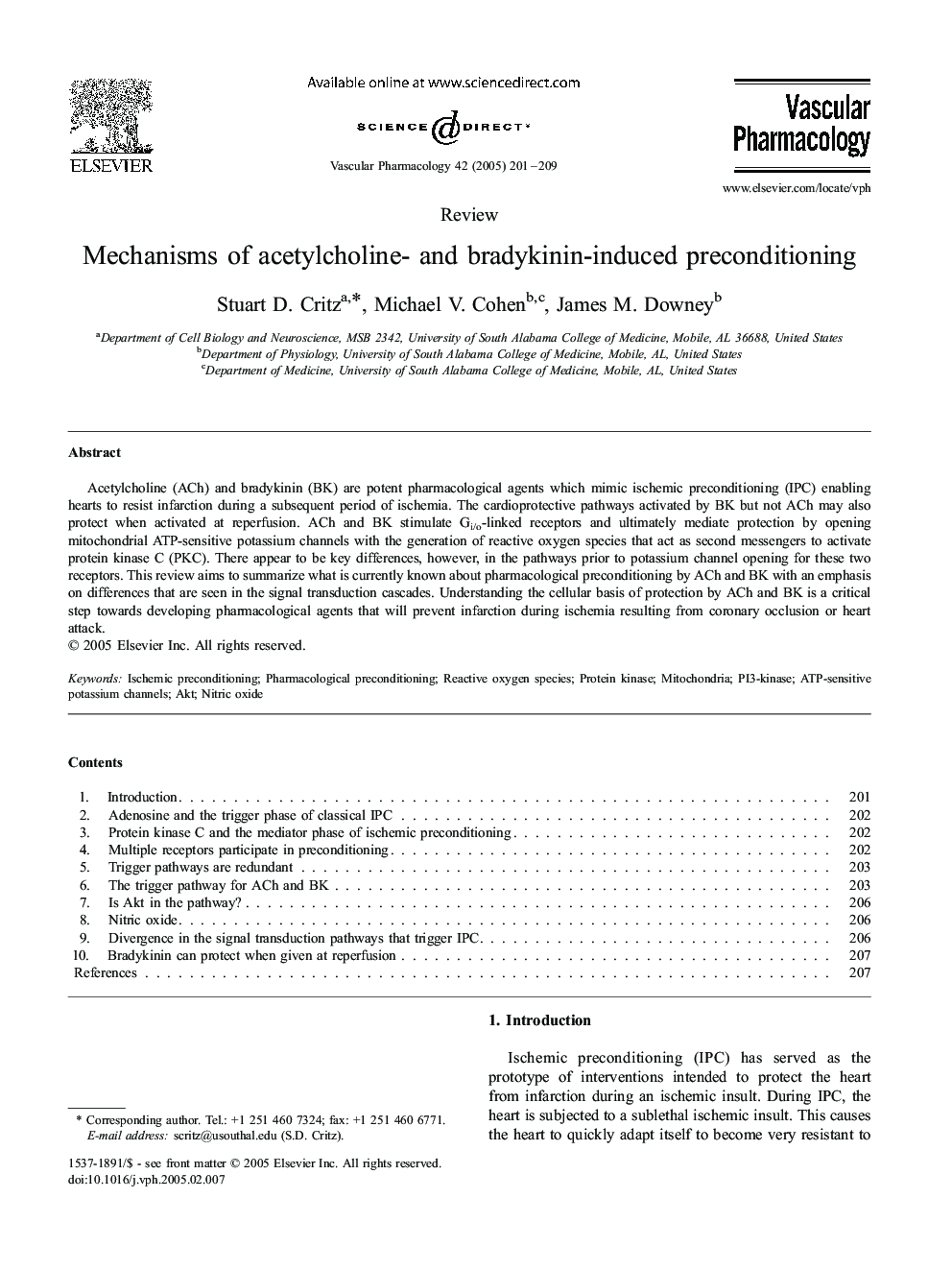| Article ID | Journal | Published Year | Pages | File Type |
|---|---|---|---|---|
| 9020828 | Vascular Pharmacology | 2005 | 9 Pages |
Abstract
Acetylcholine (ACh) and bradykinin (BK) are potent pharmacological agents which mimic ischemic preconditioning (IPC) enabling hearts to resist infarction during a subsequent period of ischemia. The cardioprotective pathways activated by BK but not ACh may also protect when activated at reperfusion. ACh and BK stimulate Gi/o-linked receptors and ultimately mediate protection by opening mitochondrial ATP-sensitive potassium channels with the generation of reactive oxygen species that act as second messengers to activate protein kinase C (PKC). There appear to be key differences, however, in the pathways prior to potassium channel opening for these two receptors. This review aims to summarize what is currently known about pharmacological preconditioning by ACh and BK with an emphasis on differences that are seen in the signal transduction cascades. Understanding the cellular basis of protection by ACh and BK is a critical step towards developing pharmacological agents that will prevent infarction during ischemia resulting from coronary occlusion or heart attack.
Keywords
Related Topics
Health Sciences
Medicine and Dentistry
Cardiology and Cardiovascular Medicine
Authors
Stuart D. Critz, Michael V. Cohen, James M. Downey,
